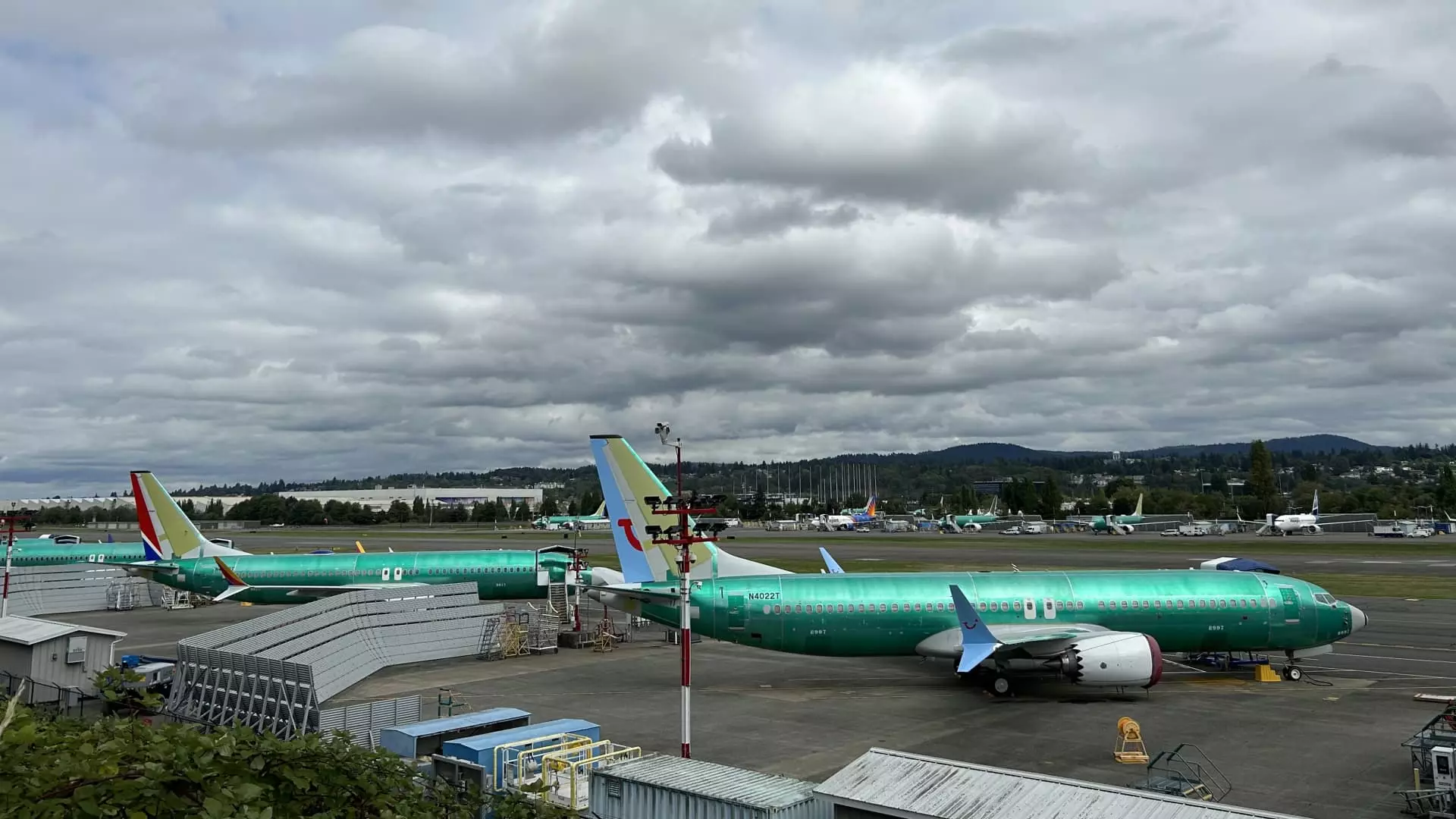In 2024, Boeing experienced a significant downturn in its aircraft deliveries, handing over only 348 airplanes—approximately one-third less than the previous year. This decline can be attributed to a confluence of challenges that the aerospace giant faced, including a midair incident involving a door panel blowout and a machinist strike that temporarily halted production. These events have not only disrupted manufacturing but have also widened the gap between Boeing and its primary competitor, Airbus, which successfully delivered 766 aircraft in the same timeframe, marking its highest output since 2019.
Deliveries are a critical metric for aircraft manufacturers, as they represent the moment when airlines pay a substantial portion of an aircraft’s price. The setback in deliveries has not only impacted Boeing’s immediate revenue but has also compromised its position in the competitive market. Boeing’s December figures saw a modest recovery with the delivery of 30 airplanes, coinciding with the resumption of production of its highly regarded 737 Max after the resolution of the machinist strike. However, the challenges the company faces highlight the fragility of the supply chain and the importance of maintaining smooth operations, especially as the demand for aircraft continues to rise.
The aerospace sector is currently grappling with significant strain on its supply chains, exacerbating Boeing’s struggles. Counterintuitively, this scenario has led to a rise in lease rates, which are projected to hit record highs this year. The constrained availability of aircraft due to supply shortages has prompted airlines to seek alternative leasing options, further underscoring the escalating demand. According to aviation data provider IBA, this has created an intensely competitive leasing market, challenging OEMs (Original Equipment Manufacturers) to meet the growing needs of airlines.
Despite delivering fewer airplanes, Boeing secured 142 gross orders in December, including a major contract for 100 737 Maxes from Pegasus Airlines, reflecting a continued interest in their aircraft offerings. Nonetheless, Boeing’s overall performance in 2024 resulted in 569 gross orders and a lowered net of 377, especially when accounting for contract adjustments from India’s Jet Airways, which has ceased operations. In stark contrast, Airbus reported a solid performance with 878 gross orders and 826 net orders for 2023, reinforcing their position as a formidable competitor in the aerospace market.
As Boeing prepares to face investors on January 28, executives, including CEO Kelly Ortberg, will need to address strategies aimed at ramping up production levels and restoring financial stability in a tumultuous market environment. With a challenging year behind them, the industry eyes Boeing for indications of recovery plans, as stakeholders remain optimistic yet cautious about the company’s future performance amidst ongoing challenges. The forthcoming discussions are likely to play a crucial role in shaping investor sentiment and the overall trajectory of Boeing’s operations going forward.

